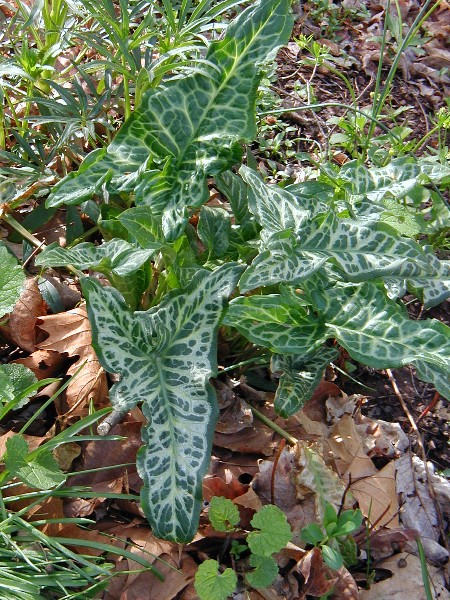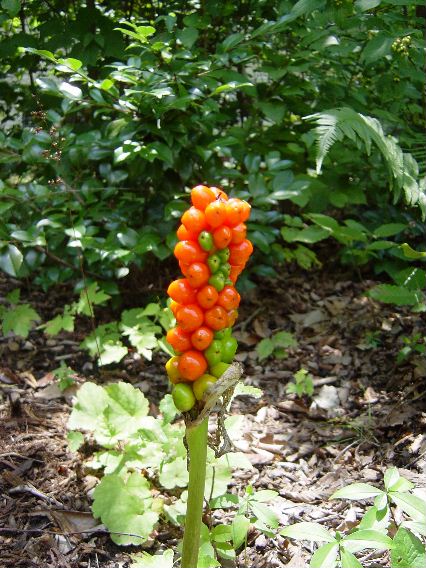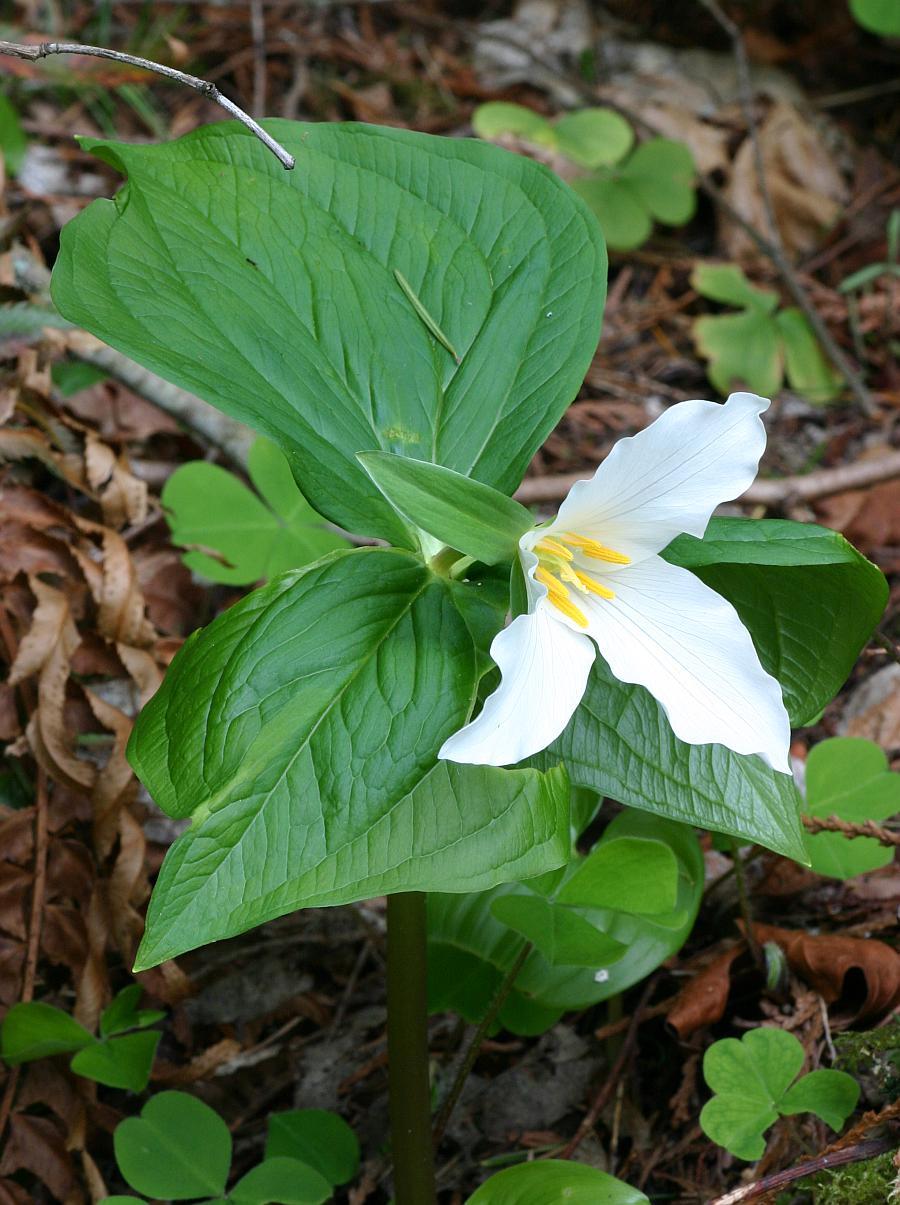Introduced species: Italian Arum (Arum italicum)
Characteristics: Italian Arum—a.k.a. Lords and Ladies—is a tuberous perennial, growing to 12 inches high. It has glossy, arrow-shaped leaves up to 14 inches long, with white or yellow “marbling”. A finger-like spadix of white or yellow flowers, partially sheathed by a large, pale-green bract, is borne on an erect stalk in spring and early summer. After bloom, all parts except for the spadix wither; this develops into a spike of bright, orange-red berries, which last until new leaves emerge in autumn. Arum frequently persists above ground through the winter in our area. It is native to Europe and North Africa.
Spread: Italian Arum reproduces mostly by seed; flowers have both male and female parts, and are pollinated by flies. Corms (underground bulblets) will also grow into new plants if not dried out, bagged, or burned. Italian Arum does best in moist, well-drained, humus-rich soil, and is prone to spreading from gardens to adjacent woodlands, where it competes with native species.
Control: Arum is tough to remove, owing to the difficulty of locating all the corms underground; multiple seasons of removal may be required to eliminate it once it is established. Digging and sieving for corms can work for small patches; larger infestations may necessitate herbicide application (though the waxy leaves may make chemical control less effective, owing to poor uptake).
Native Replacements: Several native perennial or shrub species will grow very well in habitat preferred by Italian Arum. Trillium (Trillium ovatum) has beautiful, deep-green leaves and a showy white flower that is the harbinger of springtime in the northwest. Three native saxifrage species: fringecup (Tellima grandiflora), piggyback plant (Tolmiea menziesii, also called youth-on-age), or—for wetter sites—foamflower (Tiarella trifoliata) are native perennials with lovely white or pink flowers. Glossy-leaved native shrubs such as salal (Gaultheria shallon) or creeping Oregon grape (Mahonia repens) would also make excellent substitutes for Italian arum.



